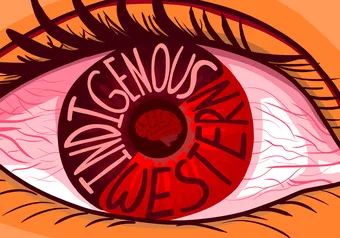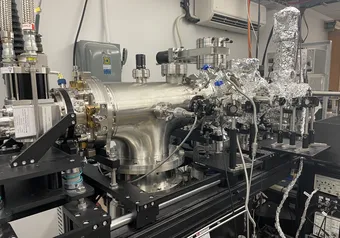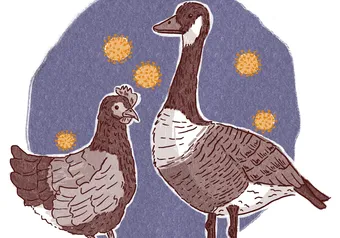Sometimes, going from point A to point B isn’t the only thing that matters.
In research, it can be easy to just focus on reaching the end goals without considering the people involved along the way. The Gender+ in Research Collective
The Collective embraces intersectional gender analysis throughout the research process. Using a gender+ lens, which recognizes that gender is intersected by other facets of identity like race, age, sexual orientation and more, researchers strive to understand more about the experiences of diverse populations in a deeper way.
“From the beginning, this Collective has always been about creating a space, whether that be physical or metaphorical, for graduate students, undergraduate students [and] faculty who really want to think differently and bring an intersectional approach to their research,” said Tamara Baldwin, the director of ORICE and co-founder of the Collective.
“Bringing a genderintersectional approach to research is starting with [intersectionality] right from the beginning. It's … the very first questions that we ask, thinking about how even our research questions are informed through a gender intersectional lens and being able to question ourselves.”
According to Baldwin, conducting research through a gender+ lens isn’t merely about collecting sex disaggregated data (which is collected and analyzed separately in male and female categories), but rather about thoughtful reflection from the beginning of the process until the end. She said this can be best achieved within a community, where students from diverse backgrounds can support one another and help make the thinking process more intuitive.
With experiences in higher education, community development and student engagement, Baldwin has noticed a hierarchy of knowledge within academia, where there is a great focus on academic experts for knowledge, yet a lack of consideration for people who do not hold academic degrees but have a wealth of knowledge from lived experiences.
“[Traditional knowledge structures] are set up with the idea that there's expertise that is to inform the non-knowledgeable," said Baldwin. "In an academic setting, that idea is that … those who are experts hold three letters after their name, often in the form of a PhD. We like to challenge that idea, particularly to say that knowledge is held in many ways.”
Knowledge from only certain populations being valued can result in bias in research, leading to inequity among other marginalized groups.
KJ Go, a UBC alumnus and former Program and Communications Assistant for the Collective, highlighted objectivity and positionality in their work, through which differences in social position and power shape access and identities in society.
“[When seeing] numbers [and] data, you think, ‘Oh, well, that's completely right [and] objective,’ … [That] invisibilizes your own bias and the systems of oppression that are influencing that research,” said Go.
They recounted an interview with an engineering professor conducted as part of their work in the Collective, where they learned about the impact of genderintersectional research in engineering designs.
“When you think about how cars are made, the way that they use crash test dummies, they're all modeled for men. And if it's men who are designing [and] researching certain things, they're going to make it for men … It’s not just because they want it, [or that] they're thinking dominantly, like ‘I want this to benefit me.’ That's just their positionality. That's just what they know.”
During their time with the Collective, Go created a scholarly directory for faculty and students doing intersectionality research and facilitated (De)Mystifying Gender+ in Research, a 6-week workshop on the foundations of gendered and intersectional research. During the workshop, participants learned about applying a gender+ lens in research through a series of interactive activities and guest speakers.
“Part of what (De)Mystifying was [about was] … creating a space for people to learn about genderintersectional research practices and theories. We don't claim to be experts. We want everyone to learn together because it's the whole goal,” said Go.
Aside from the workshop, the Collective has resources available such as research guides and has run student programs and research internships, which is how Go got involved with ORICE initially.
Participating students are from a wide range of disciplines, from sciences and engineering to music and sociology. According to Baldwin, many appreciated reflecting on their research and learning from each other, further strengthening the community.
With its interdisciplinary approach, intersectionality research extends beyond mere data collection and analysis.
As a current JD candidate at the University of Alberta, Go finds their experiences in intersectionality research through the Collective helpful in their legal studies, such as the role of intersectionality for marginalized individuals specifically affected by the criminal legal system.
Meanwhile, Baldwin stresses the deep consideration for intersectional research throughout every process.
“It’s not like we can get the pocket cheat sheet of ‘Do A, B, C and D, and now ‘Check, we've done gendered and intersectional research!’’ It's really an ethical and ongoing commitment to [think about how] we engage,” said Baldwin.
First online
Share this article







